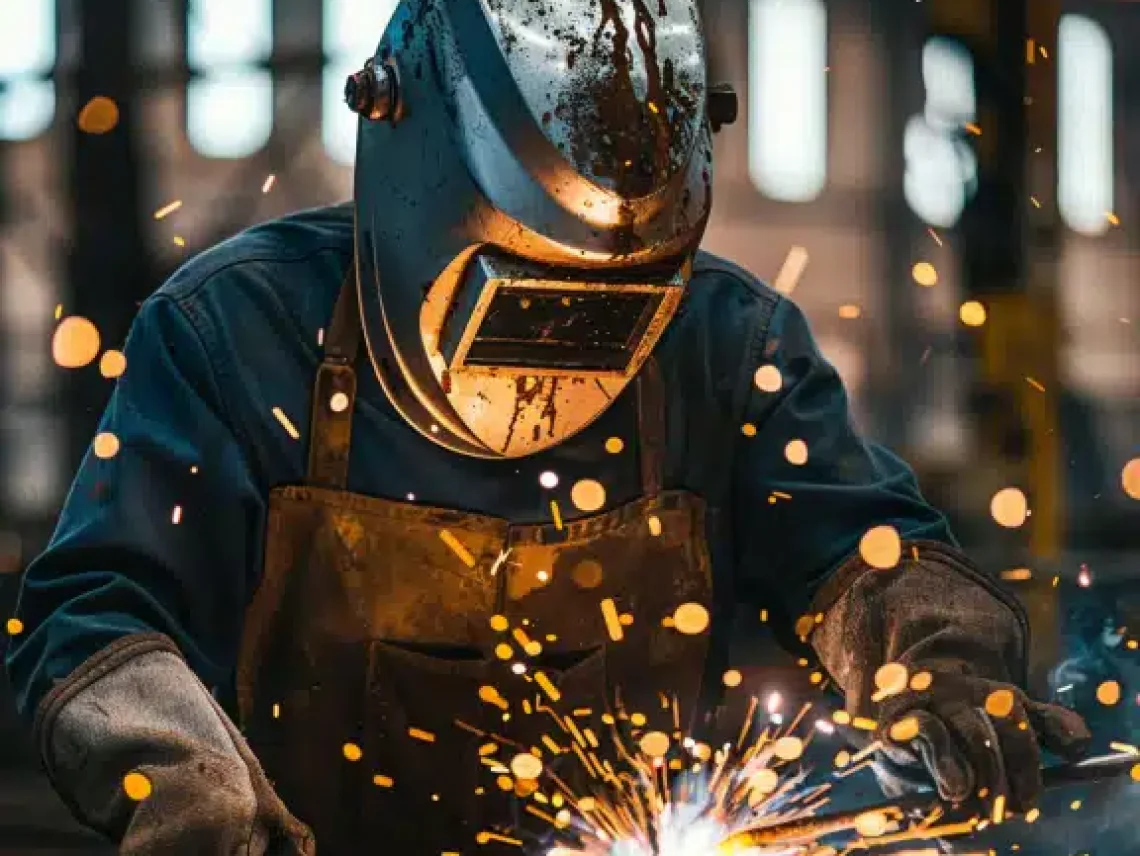
There are four main welding certifications recognized in the industry — SMAW, GTAW, GMAW, and FCAW. Each certification validates specific welding skills, ensuring welders are qualified for different technical applications, including high-stakes industries like pressure vessel manufacturing
Welding certifications aren’t just pieces of paper — they are proof that a welder can meet rigorous industry standards. Whether for ASME code compliance or specialized projects like pressure vessel fabrication, certifications guarantee safety, durability, and performance. They also influence project timelines, costs, and quality, making them essential for both welders and employers.
Also known as stick welding, SMAW is one of the most versatile and widely used welding methods. The SMAW certification ensures welders can work with different positions and materials, producing durable welds crucial for heavy-duty applications like vessel construction.
GTAW, or TIG welding, is valued for precision and clean welds. This certification is especially important when fabricating pressure vessels that cannot tolerate flaws. Welders must demonstrate advanced skill in controlling heat and ensuring weld quality.
GMAW is a fast, efficient method often used in manufacturing environments where speed matters. Certification in GMAW confirms that a welder can deliver reliable results under strict timeframes without sacrificing safety or strength.
FCAW certification focuses on welders’ ability to create strong, deep-penetration welds at a high pace. It’s essential for projects where both speed and durability are required, such as structural steel and heavy fabrication.
To answer the question — how many welding certifications are there? — the welding industry primarily recognizes four main types. Each plays a vital role in ensuring welders are competent, safe, and capable of meeting industry-specific demands. By pursuing and maintaining these certifications, welders open the door to greater opportunities, while employers gain confidence in the quality of their projects.
At Red River, we specialize in ASME-compliant welding and advanced welding certifications. Whether you need pressure vessels, prefabricated spools, or skid packages, we deliver with precision and integrity.
Reach out today to experience the Red River difference.
There are four main welding certifications — SMAW, GTAW, GMAW, and FCAW. Each validates a welder’s ability to handle different techniques and requirements.
ASME standards demand strict compliance. Certifications ensure welders can meet those safety and quality requirements consistently.
No. Each certification specializes in different processes. Many projects require welders with multiple certifications.
Yes, certifications typically require renewal or re-testing after a certain period to maintain validity.
You can explore detailed resources from the American Welding Society (AWS) and the Occupational Safety and Health Administration (OSHA)
There are four main welding certifications: SMAW, GTAW, GMAW, and FCAW.
Certifications prove a welder’s technical skills, safety compliance, and industry readiness.
Employers rely on certifications to reduce risk, control costs, and meet ASME standards.
Welders with multiple certifications are more versatile and in higher demand.
Staying updated with certifications ensures long-term career growth and project success.
In the realm of industrial solutions, Red River emerges as a pioneer, offering a diverse range of custom-engineered products and facilities. Among our specialties is the design and production of Custom/OEM Pressure Vessels, meticulously crafted to meet individual client requirements, ensuring performance under various pressure conditions. Our expertise extends to the domain of prefabrication, where Red River leads with distinction.
The company excels in creating prefabricated facilities, modules, and packages, reinforcing its stance as a forerunner in innovation and quality. This proficiency is further mirrored in their Modular Skids offering, where they provide an array of Modular Fabricated Skid Packages and Packaged equipment. Each piece is tailored to client specifications, underlining their commitment to delivering precision and excellence in every project they undertake.